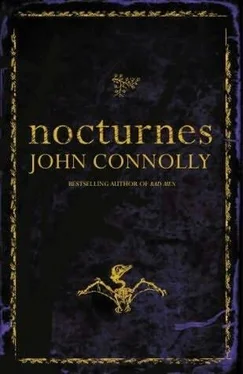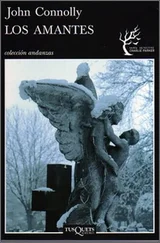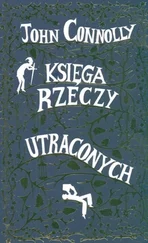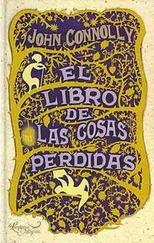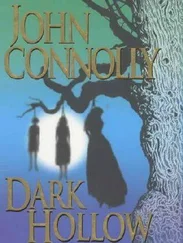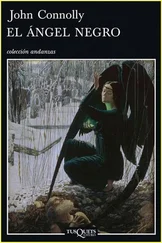The smell of rot was stronger now, as was the chemical stench of the wallpaper pastes. A large strip of paper had come loose from the wall of the entrance hall since I had been there last, and it hung at an angle like a bookmarked page, exposing the damp plaster beneath. I shined the flashlight on it and saw what looked like fragments of letters and drawings beneath the paper. I pulled the strip away.
The wall was covered in writing and symbols, none of them familiar to me. I thought that the language might have been Latin, but the script was so faded it was impossible to tell. I tore another strip from the wall, and more writing was revealed, this time adorned with circles and stars. There was a purpose to this, but I could not guess what it might be. The smells of the house, seemingly intensified by my action in pulling away the paper, made me feel ill. I jammed a handkerchief to my nose and tried to breathe shallowly through my mouth as I moved toward the dining-room door. I pushed at it with my foot and entered.
The connecting doors between the two rooms were open, as though in expectation of some great party that would now never take place. The mirrors stared down upon dusty floors and torn drapes. They should have reflected what I saw, but they did not. Instead, I saw in their decaying glass the gleam of lighted chandeliers, and expensive, hand-printed paper on the walls. The drapes were no longer faded and ripped, but vibrant and fresh. There were thick carpets upon the floors, and a dining table set for two people.
I felt my shoe scuff the dust upon the bare boards under my feet. There was nothing in this room but filth and dead bugs, yet in the mirror I saw the house as it might have been. I passed through the connecting doors into the receiving room, and there glimpsed thick couches and matching smoking chairs, and walls lined with books, all reflected in the depths of the mirrors upon the walls.
It’s his house, I thought. It’s Grady’s house, as he saw it in his own mind.
I felt a presence behind me, but when I turned I saw only my own reflection in the mirror in the hallway, set against the wonders of the ornate rooms at my back. But something else was there, waiting in the glass. I sensed it, even as my vision swam and a coughing racked my body as the stench of old glue and damp seemed to grow stronger.
Then I noticed for the first time that the door to the basement was no longer closed and locked. I knew there was another mirror on the door, and that if I looked into its face I would see more figments of John Grady’s imagination, somehow wheedling their way into my consciousness.
“Who’s there?” I called.
And a voice answered, and I thought it sounded like the voice of a little girl.
I’m here, it said. Can you see me?
I moved the flashlight, trying to find the source of the voice.
Here. I’m here. Behind you.
And when I spun there was a mirror, and in the mirror I saw a child, her hair matted and dirty, her red dress torn. Farther back I saw another little girl, with pale cheeks and torn skin. The girl who had spoken pressed herself to the mirror as though it were glass, and I saw her skin flatten against it.
He’s here, she said. He never left.
From the corner of my eye I saw a darkness pass across the mirror in the dining room. It was the figure of a man, blurred like a bad projection. It moved quickly, shifting from mirror to mirror, progressing toward the hallway.
He’s coming, said the little girl, and then she and her companion were gone.
I raised my gun. It seemed that everywhere I looked there was movement, and I thought I heard a child’s voice raised in fear.
I shook my head. Now the sounds came from below me, from the basement, and I made my way toward them. In the mirror upon the door, I saw myself trapped in the Grady house that never was. The stairs to the basement descended before me. The flashlight beam illuminated strands of cobweb, the stone floor, and a single chair that stood beneath the empty light socket. It was small, too small for an adult to use, but the perfect size for a child. There were more mirrors on the walls here, but they showed no beautiful furnishings, no carpets or drapes. This was Grady’s killing place, and he had no need of beauty here. I passed from mirror to mirror, my light angled away from the glass. I saw myself reflected, again and again and again.
And for a brief instant I saw another man’s face, suspended behind mine, before it retreated once again into the shadows. I raised my gun, aimed it at the glass-
Then stopped. There came the sound of footsteps above me, approaching the cellar door through the main hallway. I killed the flashlight and retreated into the darkness, just as another light came from above. I heard a man’s breathing, and the creaking of the banister rail as he placed his weight upon it, and then his figure came into view. He was a big man, and over his left shoulder he carried a sack. The sack was moving.
“Almost there,” he said.
The flashlight jogged in his hand as he reached the floor of the basement. Gently, he placed the sack on the ground, then unscrewed the head of the flashlight so that its bulb became a candle, and in its glow I saw his face.
“Don’t move,” I said, as I emerged from the darkness by the stair.
Chief Grass didn’t look as surprised as he should have done, under the circumstances. Instead, his eyes had a slightly glazed look to them. I saw the gun in his left hand, previously hidden from me by the sack. It was lodged against the head of the child inside.
“You shouldn’t be here,” he said. “He won’t like it.”
“Who won’t like it?” I said.
“Mr. Grady. He doesn’t like strangers in his home.”
“What about you? Aren’t you a stranger too?”
Grass snickered. It was an unpleasant sound.
“Oh no,” he said. “I’ve been coming here for a long, long time. It took a while for Mr. Grady to begin to trust me, but once he did, well, everything was fine. We talk a lot. He’s lonely. I brought him some company, some new blood.”
He kicked the sack, and the child within gave a muffled cry.
“What’s her name?” I asked.
“Lisette,” replied Grass. “She’s very pretty, but then, you’ve seen her picture.”
Pretty.
I heard a distant voice echo the word, and in the mirror at Grass’s back I saw John Grady reflected. His fingertips pressed against the glass, flattening as the dead child’s skin had done, and he stared down at the shape of the little girl moving feebly in the sack. I saw his prominent chin, curved and jutting, his neat hair, the little stained bow tie at his neck. His lips moved constantly in a litany of desire, the words now unintelligible but their import clear.
“It’s the house, Grass,” I said. “It’s making you do this. It’s wrong. You know it’s wrong. Put the gun down.”
Grass shook his head. “I can’t,” he said. “Mr. Grady-”
“Grady is dead,” I said.
“No, he’s here.”
“Listen to me, Grass. Something in this house has affected you. You’re not thinking clearly. We need to get you out. I’m taking the girl, and then we’re all going to leave.”
For the first time, Grass looked uncertain.
“He told me to bring her. He chose her. Out of all the girls I showed him, he chose this one.”
“No,” I said. “You imagined it. You’ve spent too long here. Everything about this place is poisonous, and somehow it’s burrowed into your mind.”
Grass’s gun wavered slightly. He looked from me to the girl on the ground, then back again.
“It’s infected your thoughts, Grass. You don’t want to hurt this little girl. You’re a cop. You have to protect her, just like you protected Denny Maguire. Let her go. You must let her go.”
Читать дальше
